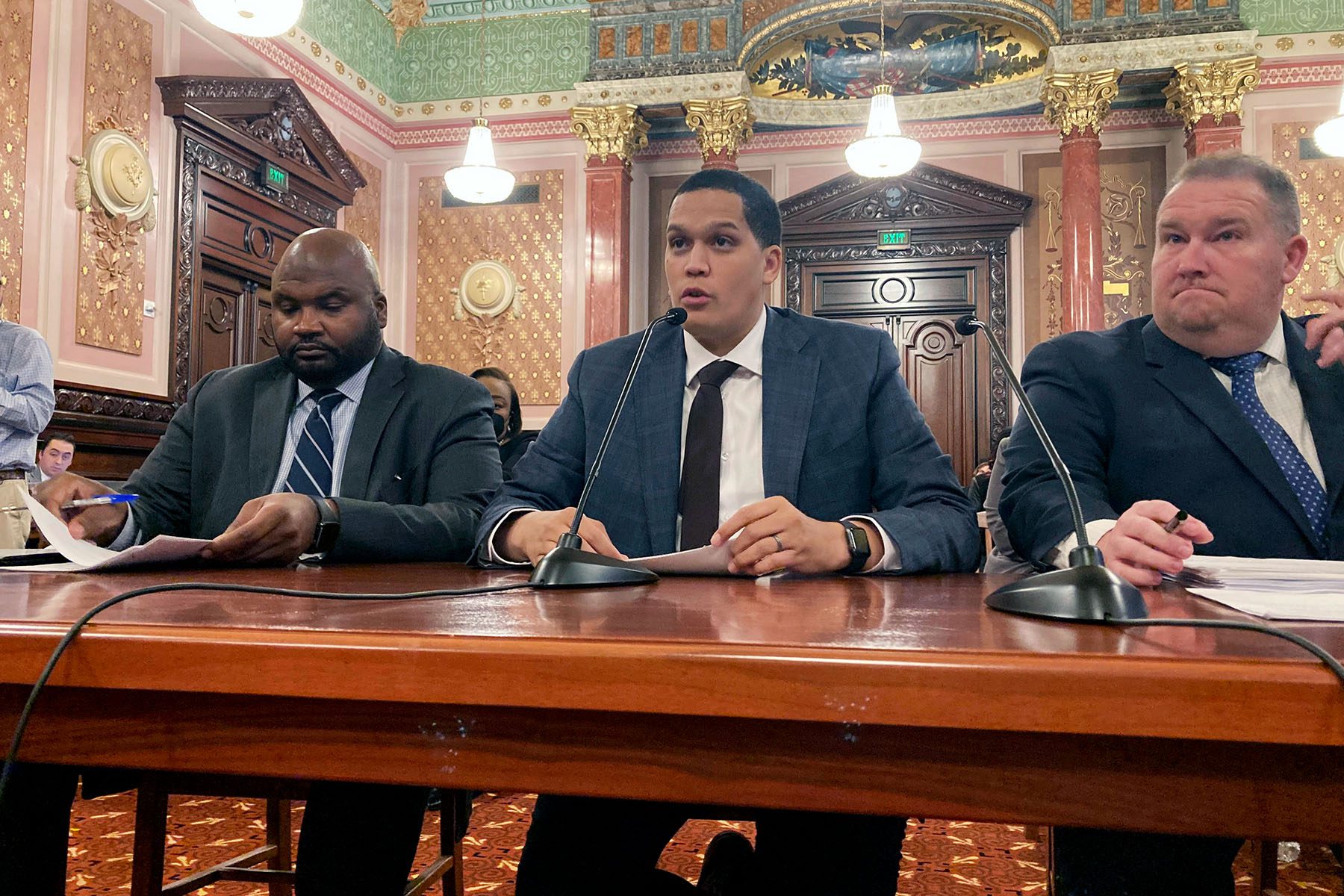On January 1, Illinois will become the first state in the country to officially eliminate its cash bail system when the Pretrial Fairness Act goes into effect. Under the new system, a person will only be detained before trial if a judge determines that they pose a threat to others or have a likelihood of being a flight risk.
The measure — part of a 2021 omnibus criminal justice reform bill — was the fruit of years of organizing and advocacy work, much of which was led by women in the state who understood that ending money bail is a gender issue.
The cash bail system plays a role in the United States’ growing jail population. According to the Prison Policy Initiative, the nation’s jails hold more than 400,000 people awaiting trial, a number that has nearly quadrupled since the 1980s. Many of them cannot afford to post bail. An increasing number of those jailed pretrial are women.
“The rate of female incarceration in jails is rising at a much faster rate than we want it to be,” said Sarah Staudt, a former defense attorney who is now the director of policy for the Chicago Appleseed Center for Fair Courts. “We know that bail reform is necessary in terms of making sure that women who are arrested for crimes and have not yet been convicted have access to freedom while they’re fighting their cases.”
It is also often women — mothers, grandmothers, wives, sisters, girlfriends — who have to come up with the money for their jailed loved ones, which presents a financial burden.
-
More from The 19th
- ‘A whole new perspective’: Jennifer McClellan could become first Black woman to represent Virginia in U.S. House
- Success of ‘slavery on the ballot’ measures could help incarcerated pregnant people of color
- Biden’s judicial nominations have set records for diversity, but dozens remain unconfirmed
One leader who pushed for the change in Illinois is Tanya Watkins, the executive director of Southsiders Organized for Unity and Liberation (SOUL). The group, whose goal is to direct grassroots power toward social justice and improving life on the South Side of Chicago, became involved in the fight against money bail nearly a decade ago when leaders realized that many of the people they were working with had loved ones who were in jail because they could not afford to post their bail.
“Many of these conversations, particularly the ones that I heard early on, I deeply related to,” Watkins said. “Some folks didn’t do anything, they were still there. Other folks did things to survive. At the same time, there were folks who were later convicted of rape or murder who were bonded out.”
Although there were organizations like the Chicago Community Bond Fund (CCBF) that were working to pay people’s bonds so they would not have to wait in jail pretrial, it became evident that this was only a temporary solution. Briana Payton, a policy analyst at CCBF, told The 19th that the organization became deeply involved in the campaign to end money bail, and helped secure plaintiffs for a lawsuit that challenged money bond in Cook County. The lawsuit paved the way for bail reform in the county in 2017. A study conducted afterward by Loyola University found that the change ultimately did not lead to a rise in violent crime.
“I think one thing that’s really powerful about this coalition and the reason that it’s been successful is that there’s been this inside and outside approach to change making,” said Payton, who helped with education efforts around the Pretrial Fairness Act.
“We are willing to go through the means and systems that the system has put in place for us to request change, but then we also go into the streets to demand change and to say that is what our communities are demanding,” Payton said.

As Payton noted, the passage of the law came in the wake of the 2020 protests for racial justice, a time when people were looking for substantial change. State Sen. Robert Peters, the sponsor of the legislation, collaborated with various groups as he worked to ensure that concerns were addressed in the legislation.
“My colleagues and I, with input from the Coalition to End Money Bond, the States Attorneys Association, the Sheriff’s Association, and survivor advocates were able to create something that will change lives and reform the criminal justice system for the better. This is our generation carrying the torch for civil and human rights,” Peters said in a statement earlier this month.
Throughout the drafting of the law, it was clear that it would have both racial justice and economic implications, but bill authors also made sure to take gender into consideration, especially when looking at what the elimination of cash bail might mean for victims of gender-based crime.
Staudt, who was involved in drafting the law, told The 19th that advocates who work with survivors of gender-based violence were involved in the process. The Pretrial Fairness Act entitles survivors to be notified when their alleged perpetrator is scheduled for a detention hearing or pretrial release. This way they have time to create a safety plan for themselves.
“We were excited to partner with the Illinois Network for Pretrial Justice to center the needs of survivors to ensure safety protections were included in the law,” said Amanda Pyron, the executive director of The Network: Advocating Against Domestic Violence.
Madeleine Behr, the policy manager at the Chicago Alliance Against Sexual Exploitation (CAASE) was also deeply involved in shaping the language for the victim portions of the bill and pointed out that survivors of gender-based violence often found themselves detained as well. Noting that “issues of sexual exploitation and trafficking disproportionately affect Black women,” Behr emphasized that money bail would be very helpful for survivors. She said she got further involved in the drafting process to ensure that there were provisions in the law to support victims.
Although there was little fanfare when the law was initially passed in 2021, as the law is about to go into effect, millions of dollars were poured into an online misinformation campaign that suggested that Illinois was instituting a purge law, and that those charged with serious, violent offenses would be immediately subject to release. The Civic Federation — a nonpartisan government research organization that works to maximize the quality and cost-effectiveness of government services in Chicago — debunked this claim.
The law’s supporters have also contended with recent pushback in the statehouse and among some law enforcement officials based on the potential effect on crime levels. While studies remain relatively small because many bail reform policies have only been in place a few years, a Prison Policy Initiative analysis suggested that, like in Cook County, crime levels stayed the same or decreased in states that loosened their bail laws, including Kentucky, New Mexico and New Jersey.
Still, to combat the misinformation, Payton noted that the grassroots effort that helped to get the law passed was needed to further reach the public and explain to them what the law entails.
“Even once it passed, there was a need for education and defense of the law,” said Allie Lichterman, who began working as an organizer with The People’s Lobby, a grassroots organization that works to build support for progressive policies, shortly after the law passed. She was a part of a team of people who knocked on thousands of doors to talk to people face to face about the law. She found that the law received support even in communities where that might not have been expected.
“Even in conservative areas that people think are not going to be supportive of a law like this, if you go and talk to people face to face, and really come to them on a level of vulnerability and understanding and saying that you also care about public safety, and you understand their concerns are coming from a place of safety, that they’re really movable and willing to listen,” Lichterman said.







